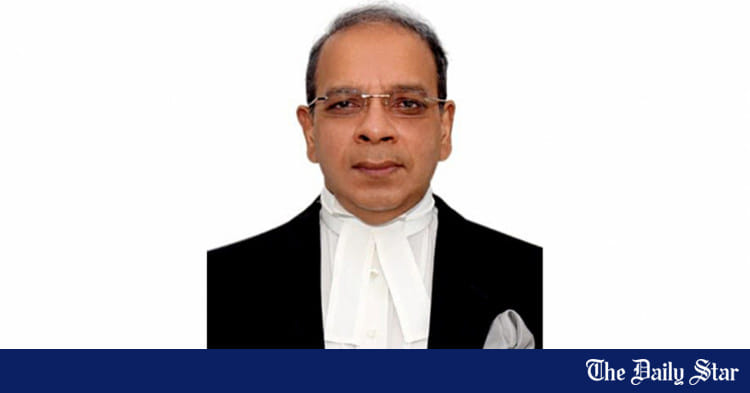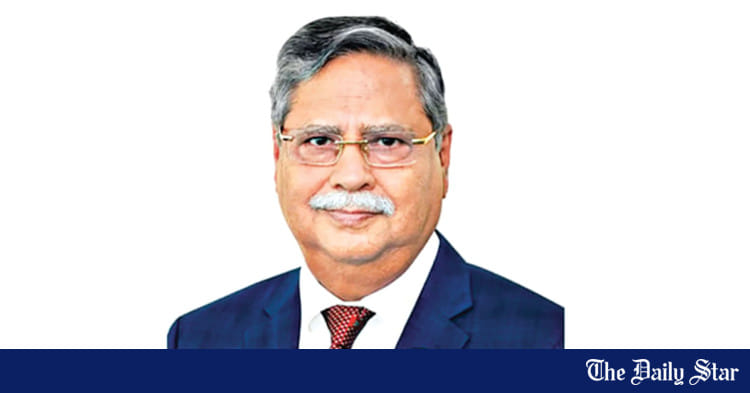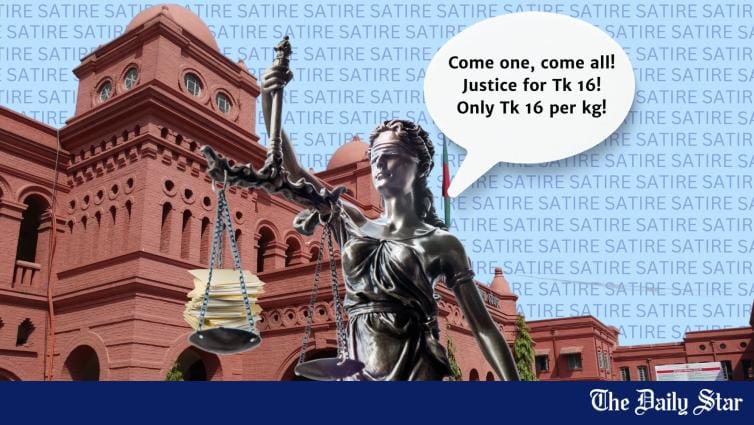Judiciary reform commission
Recommendation for separate investigative agency outside police
The police, CID and the PBI are now in charge of the investigations into the criminal cases.
The proposed investigative agency will have a completely separate manpower from the police.
Mohiuddin Faruk
Dhaka
Published: 04 Jan 2025, 16: 30
The judiciary reform commission feels a separate agency is needed to investigate the criminal cases. The agency will be competent and reliable so that it can operate without external influence. The commission also stressed the need of a permanent attorney service to regain people's confidence in the judiciary.
The recommendation came up in the preliminary report of the commission which was sent to the law ministry recently.
At the moment, the police are in charge of running investigations into criminal cases. Apart from the police stations, the Criminal Investigation Department (CID) of the police and the Police Bureau of Investigation (PBI) also investigate criminal cases. The PBI was founded in 2012. These units operate under the Bangladesh Police. The members are recruited through transfer from the police force.
The preliminary report also cites some basic criteria of the proposed investigative agency. The report states that the proposed investigative agency will have a completely separate manpower from the police. Their appointment, conditions for service, budget, infrastructure and other ancillary matters will be under an independent institutional framework or organisation. The work of the proposed agency starts after the filing of a case. The investigation officials of the agency will work under the supervision of relevant attorneys or prosecutors.
Speaking to Prothom Alo, judiciary reform commission member Tanim Hossain Shawon said the preliminary report includes several recommendations including formation of a separate independent agency to ensure a proper and neutral investigation into criminal cases, formation of a permanent attorney service and ensuring a speedy and initiatives to ensure effective justice at a low cost in a quick time.
Police investigate criminal cases all over the world. There are also exceptions. For instance, in France, magistrates conduct investigations. We already have several agencies like the CID, PBI or the ACC (Anti-corruption Commission) to run investigations. So it’s not clear to me as to why another separate agency will be needed. Nurul Huda, former IGP
Besides, the commission is considering several other issues including financial independence of the judiciary and ensuring adequate budget.
The interim government has formed 11 commissions for the reform of different sectors and the judiciary reform commission is one of those. The eight-member-committee headed by retired justice Shah Abu Nayeem Mominur Rahman was formed on 3 October. The committee has a deadline of 90 days to submit their report. The deadline ended yesterday, Friday. However, the deadline has been extended up to 31 January. Before that, the commission sent a preliminary report to the law ministry.
The preliminary report says investigation is one of the most significant parts in the criminal justice system. Investigations are likely to have flaws and weaknesses in case the investigation official is not honest, brave, efficient and professional. In many cases, actual information is not reflected in the investigation due political influence and pressure. The verdict of a case depends a lot on a speedy and quality investigation.
Asked about the recommendations of the commission, former inspector general of police (IGP) Nurul Huda said, “Police investigate criminal cases all over the world. There are also exceptions. For instance, in France, magistrates conduct investigations. We already have several agencies like the CID, PBI or the ACC (Anti-corruption Commission) to run investigations. So it’s not clear to me as to why another separate agency will be needed.”
In the existing system, even the IGP does not have the jurisdiction to intervene with the investigation officer. Despite that, there have been numerous cases of exerting influence for mainly political reasons. He questioned, “Where is the guarantee that there will be no influence on the proposed agency?”
Police have multifaceted tasks. If a separate team is engaged only in investigations, it will enhance their competence and experience--Shahdin Malik, Supreme Court lawyer
The lawyers say the overall conviction rate in criminal cases in the country is more or less 20 per cent. The accused gets acquitted in 80 per cent of cases. The reason behind that is the lack of investigations. Usually an investigation officer deals with a number of cases simultaenously. They are also involved in many other tasks related to law and order. So it is natural that the investigation officer does not have enough time to run an investigation properly. There are also allegations of investigating officers altering the facts under pressure from influential persons and taking bribes.
The Transparency International Bangladesh (TIB) in a report published last month titled 'Corruption in Service Sectors: National Household Survey 2023’ said the top five sectors with the highest accusation of bribery are – passport, Bangladesh Road Transport Authority, law enforcement agencies, judicial services and land sector.
False cases and harassments
The reform commission said one of the biggest problems is false cases. In many cases, innocent persons are named among the accused. There are also cases where the actual incident is exaggerated or is completely and partially covered up. In such cases, there are possibilities of innocent people being convicted or the actual accused getting acquitted if the investigation is not fair. The incidents of filing false cases or using police to harass the rival groups are very common in the country.
The reform commission says people are afraid of the police force due to some police officials’ corruption, institutional shortcomings and arbitrary use of the police force for nefarious purposes.
The preliminary report says investigation is one of the most significant parts in the criminal justice system. Investigations are likely to have flaws and weaknesses in case the investigation official is not honest, brave, efficient and professional. In many cases, actual information is not reflected in the investigation due political influence and pressure. The verdict of a case depends a lot on a speedy and quality investigation.
Besides, the police do not have any single unit to conduct investigations; rather different departments are bestowed with the same type of tasks. The police investigation system is not organised and efficient. In many cases, trial begins without proper evidence due to lack of coordination and eventually the miscreants get acquitted.
The reform commission believes it is imperative to form an independent, effective, efficient, reliable and people- friendly investigative agency which can operate without influence.
The proposal for attorney service
The judiciary reform commission recommended formation of an attorney service. The report says to this day attorney generals and law officials at all levels have been appointed on temporary basis under political consideration. There is no legal structure to ensure accountability of law officials. Appointment of law officials is widely considered a reward for political loyalty.
Besides, there is almost no separate infrastructure, supportive manpower, budget and other necessary arrangements for district level law officials except the officials at the office of the attorney general. There is no obligation for the investigation official to consult law officials to take their opinion while investigating a criminal case. The remuneration fixed for the district level law officials is quite negligible. The service they provide is not satisfactory at all either. So there is no alternative to the formation of a permanent attorney service, the commission said.
The report also pointed out some characteristics of the proposed attorney service. It says the attorney service will be a permanent government job. There will be specific laws with proper provisions regarding the recruitment process, promotion, transfer, discipline, pay scale and other allowances and other relevant issues of the service. The attorney service will need adequate infrastructure, budget allocation and supportive manpower.
The report further says the proposed attorney service will have two units – the ‘Supreme Court unit’ consisting of assistant attorney general, deputy attorney general and additional attorney general and the ‘district unit’ consisting of assistant district attorney, deputy district attorney, additional district attorney and district attorney.
Supreme Court lawyer Shahdin Malik feels an independent investigative agency and a permanent attorney service are indeed needed for criminal cases. Praising the reform commission recommendations, he told Prothom Alo, “There are attorney services in many countries of the world. Bangladesh is an exception in this case where law cadre service doesn’t exist. All the posts, from general to public prosecutor, are often reshuffled with the change of the government resulting in a lack of competence, efficiency and experience.”
He further added, “Police have multifaceted tasks. If a separate team is engaged only in investigations, it will enhance their competence and experience. The investigation will be proper and more accurate.”
*This report appeared on the print an online versions of Prothom Alo and has been rewritten in English by Ashish Basu










































